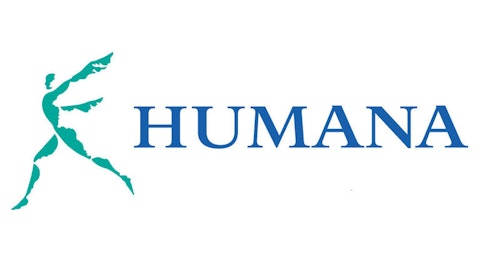An executive vice president at Aetna Inc. (NYSE:AET), Karen Rohan, directly purchased just over 4,000 shares of the company’s stock on February 6th at an average price of $49.53 per share according to a Form 4 filed with the SEC. Studies show that insider purchases tend to be bullish signals (read more about studies on insider trading). We think that this is because insiders face a strong incentive to diversify their wealth away from the company, and therefore reduce their risk; when they ignore the benefits of diversification and buy the stock anyway it signals high confidence in the company. This is why, in addition to using hedge fund filings to develop investing strategies (for example, our most popular small cap stocks among hedge funds which produced an excess return of 18% between September and January), we also maintain a database of insider purchases and take a brief look at significant insider buys to help investors decide if the company is worth further research.
Aetna Inc. has already reported its results for the fourth quarter of 2012. If we eliminate the effects of a group annuity contract conversion (which increased both revenue and expenses by about $940 million), then revenue was up 5% from the same period in 2011. However, higher health care costs rose faster than premium revenue, which not only reduced margins but also caused earnings to fall by 49%. The stock now trades at 11 times trailing earnings- health insurers in general are valued at fairly low multiples of earnings, as the market considers the industry in danger of further federal regulation. Analyst expectations for 2014 imply a forward price-to-earnings multiple of 9, showing that the sell-side expects the recent decline in net income to reverse. Even if Aetna can hold its business steady and see no growth, the stock is cheap enough that it might be worth considering.
Billionaire David Einhorn’s Greenlight Capital, which has been a major owner of many health insurance companies, increased its stake in Aetna Inc. during the third quarter of 2012 to a total of 4.4 million shares (see Einhorn’s stock picks). Orbis Investment Management, which is managed by William Gray, had 6 million shares in its own portfolio at the end of September (find Orbis’s favorite stocks). Barry Rosenstein’s JANA Partners initiated a position of 2.3 million shares in Aetna during the quarter (check out more stocks JANA was buying).
Let’s look at Aetna compared to its peers:
Other health insurance companies include Humana Inc. (NYSE:HUM), Cigna Corporation (NYSE:CI), UnitedHealth Group Inc. (NYSE:UNH), and WellPoint, Inc. (NYSE:WLP). WellPoint carries a trailing P/E of 8, while the other three peers all match Aetna at 11 times their trailing earnings. WellPoint had reported an abnormally high growth rate of earnings last quarter compared to the fourth quarter of 2011, with revenue up only slightly. However, Wall Street analysts are quite bullish in the company as they expect that low earnings multiple to hold on a forward basis and the five-year PEG ratio comes out to 0.7. Humana, Cigna, and UnitedHealth, meanwhile, have PEG ratios of about 1 as their recent earnings performance has been about flat (with the exception of Cigna, who recently carried out a large acquisition which has driven both revenue and earnings higher) and analysts seem only moderately optimistic about these companies.
With the industry trading in such a narrow range of earnings multiples, we actually think we might avoid Aetna in favor of its peers seeing as its business has been performing poorly recently. Of course, investors who think that the health insurance industry has too much regulatory risk would likely avoid these companies altogether (since they are all too cheap to be attractive shorts merely on the risk of further regulation). Aetna’s peers trade very much in value ranges and their earnings seem like they might be stable going forward.
Disclosure: I own no shares of any stocks mentioned in this article.






